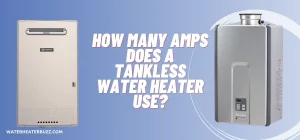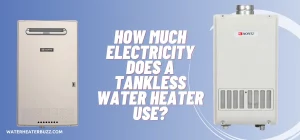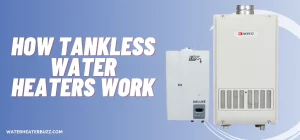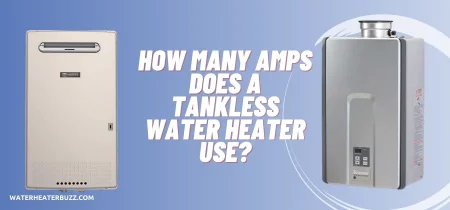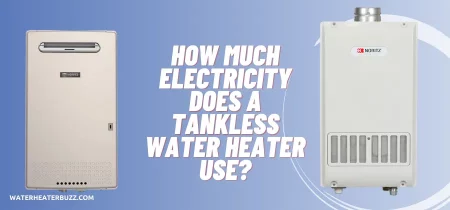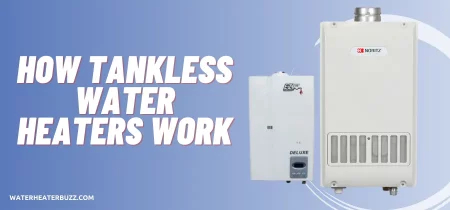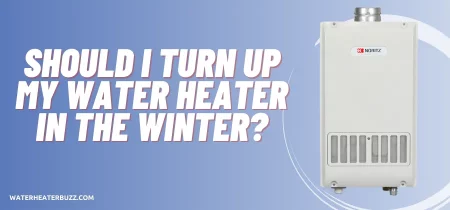Is the popularity of tankless or flash water heaters drawing your attention towards them? Are you getting stressed about purchasing a water heater for your apartment? There is a possibility that you have had enough with the old heating system that makes you contact the customer service frequently.
In this article, I have compared tank-type storage heaters and tankless heaters in depth. You have the idea that it is not only the appearance that distinguishes them from one another. Multiple aspects make one type suitable in certain conditions but unpreferable in the other. After gaining sufficient knowledge, I hope that you will be able to purchase the correct heater that will not make you regret it in the future.
Tankless Vs. Tank Water Heater
Build up and Source
Tank water heaters are much heavier than tankless heaters or flash heaters. The outer is made from steel that covers a water tank. There are two types of tank water heaters on the basis of source: gas and electric. Generally, people prefer gas tank heaters more since they involve lower initial costs.
A supply tube carries the cold water into the tank. A gas burner, present at the bottom of the storage, functions to heat the dense water. As the temperature of water increases, it flows towards the top via a process called convection. The discharge pipe draws off this hot water for consumption. A gas regulator near the heater controls the gas burner and includes a component called a thermostat for temperature measurement.
There are three major types of tankless water heaters: propane, natural gas, and electric. One can easily set the required temperature through the thermostat. A cold water inlet lets the water in the tank while gas or electricity supply begins the heating process. A heat blower or fan below the burner prevents it from getting too heated.
Flow sensors or flow switches activate the unit when a certain amount of water flows through the product. This process is called activation. Then, a heat exchanger transfers the cold water to elements to make it warmer. Either there are coiled elements or elements made of stainless steel or copper. Finally, the hot water flows outside through a pipe after through an open valve. Unlike tank heaters, these heaters will only function when hot water is required.
Durability and Maintenance
Generally, a tank water heater performs perfectly for ten to twelve years. With the passage of time, sediments present in the water start to sit at the bottom of the container. This factor results in reducing its life and also negatively impacts its efficiency. In addition, some of the parts are likely to get damaged. Thus, you will be required to keep replacing them with new ones. Typical tank storage comes with a warranty of just 5 to 6 years.
There might be a leak in extreme cases of damage, or the tank might burst, releasing gallons of corroded water. One of the major causes of a faulty burner is tank failure. Consumers will possibly need a large amount of effort to clean the mess. Thus, if you decide to buy this kind of heater, I will highly recommend the one with better quality and a longer warranty period.
On the other hand, tankless water heaters can function for twenty years after installment and even longer if you maintain the system properly. The internal parts prevent the buildup of sediments and salts. Also, each and every component is available in the market, and it is easy to replace the defective one. Moreover, these flash tanks come with a minimum of a 10-year warranty, which gives you the comfort of support and saves additional costs.
Price
A common tank heater is less expensive than a flash water heater. In case it is time to replace the heater, there are high chances that one can utilize the same gas pipes and vent tubes. It saves you from spending on the installation process. On the other hand, if you face the same situation with the other heater in consideration, a new burner is most likely to need larger pipes for ventilation. You know that it refers to greater costs.
Running Costs
Though tankless heaters involve higher initial costs, their running price is significantly lower than tank-type water heaters. It is because they consume energy more efficiently and only work when one needs to perform water-related tasks. Therefore, you do not have to spend much money in the future.
On the other hand, tank water heaters are functional and turn the water hot at an already-set temperature even when you are not using water. This aspect leads to more energy consumption and more figures in water bills. The amount of energy you can save is greater than 30%, while a tankless gas heater will reduce the energy cost by a minimum of 50%.
Ease
When it comes to convenience and availability of hot water in time, tankless heaters take the lead. Tank water heaters take some time to increase the temperature of incoming cold water when consumers have used a considerable quantity of hot water. Thus, you will have to wait for some time if you are late to shower and all the family has dressed up already. However, with tankless heaters, this inconvenience is long gone. The water heats up instantaneously without having some cold areas.
Frequently Asked Questions
Which lasts longer tankless or tank water heater?
Usually, a tankless water heater lasts longer as compared to a tank heater. You can use a tankless heater for 20 to thirty years. On the other hand, the other type lasts for a few years, that is, 6 to 7 years.
What is the downside of a tankless water heater?
The major disadvantage of purchasing a tankless water heater is that it is more expensive than bulky tank ones. Also, it involves higher costs for installation.
Do tankless water heaters use more electricity?
Only those tankless heaters that are designed to run on electricity will consume electricity. Those that consume natural gas or propane do not need electric current. Electrical products mostly do not use a significant amount of electricity. However, the heaters that work for several point-of-uses will require more electricity than less powerful heaters.
Conclusion
In conclusion, both tank water heaters and flash heaters offer some benefits and drawbacks. The necessary aspect that one should consider here is suitability and preferences. If you want to limit your purchase to less-pricey options, tank water heaters might be an ideal choice for you. I recommend electric tank heaters for regions where the gas supply gets frequently disturbed.
On the contrary, if you want a more efficient heating product that can fit a small area and serve you for a more extended period, you should give a chance to a tankless heater. The less powerful ones are perfect for some tasks and places like offices, while the more powerful ones are preferable for heavy water utilization. You will be amazed by its performance.


